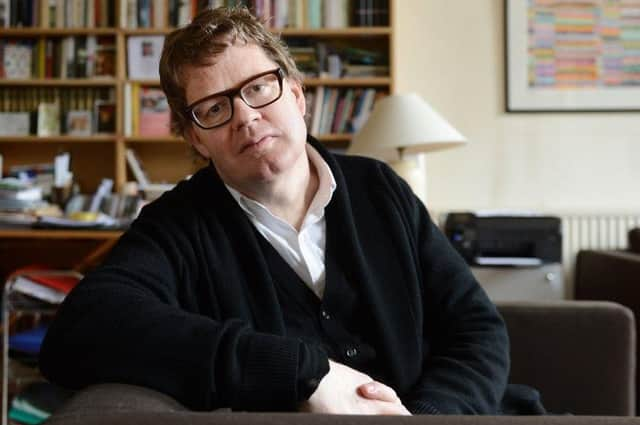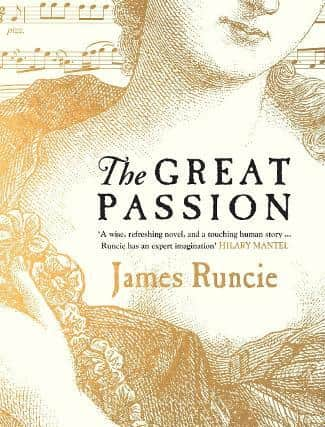Book review: The Great Passion, by James Runcie


The Great Passion is a wonderfully rich, audacious and, to me, surprising novel; surprising because all I have previously read of James Runcie’s work are his Granchester detective novels, charming investigations of Crime Light, which might be taken as a sort of homage to what is known as Golden Age mysteries. On the evidence of these books I would never have expected anything on the scale and magnificence of The Great Passion.
The title refers us to Johann Sebastian Bach’s St Matthew Passion and a central passage recounts the circumstances of its composition. The narrator, Stefan Silbermann, the son of an organ-maker, is sent, aged 11, after his mother’s death to the choir school of St Thomas’s church in Leipzig. A shy red-headed boy, bullied and unhappy, he runs away, the school being as harsh and vicious as any we are familiar with in a Dickens novel. However the quality of his treble voice and his knowledge of organ construction have attracted the notice of the Cantor, JS Bach himself, who takes him into this own house as an apprentice. There he finds a warm welcome from Bach’s large and variously talented family, and, when domestic tragedy strikes, Runcie has us follow the course of the extraordinary creation of Bach’s masterpiece, one of the greatest works in all of classical music.
Advertisement
Hide AdWriting about music and its creation is inordinately difficult, though clearly tempting. I suppose most of the great composers have attracted novelists as well as biographers, though novelists may have had more success with fictional composers, Thomas Mann’s Doktor Faustus being one such novel which springs to mind. It’s a masterpiece about an imaginary masterpiece, but how much more difficult, I suppose, to recreate in words music already recognised as a masterpiece, and admit the reader to share in the drama of its composition. Runcie triumphantly brings this off. Bach’s aim was to make the marriage of music and St Matthew’s biblical text “as shocking and unpredictable as grief itself”. Runcie finds the words to make this ring true. “We listen to music as survivors,” Bach says.


The novel has other delights. Chief among them is Runcie’s evocation of Leipzig itself and its Pietistic Lutheran Culture. By the beginning of the 18th century the city capital of Saxony had, like much of Germany, at last recovered from the devastation of the Thirty Years War (1618-48) which reduced the population by at least a third and was the most destructive European War till the horrors of the 20th century. Runcie enables us to understand a society in which religion and music were handmaidens. Despite the harshness of the choir school from which Stefan understandably tries to run away, there is a pervasive decency and kindness to the Lutheran culture. The Bach household, as presented by Runcie, is delightful, the great composer himself, though sometimes quick-tempered and volatile, is also a man of great kindness, generosity and humour. The domestic life of the Bachs recalled George Herbert’s hymn with the lines : “Who sweeps a room as for Thy sake / Makes that and the action fine.”
One supposes that this novel has been long maturing in Runcie’s imagination. Certainly it gives that impression of being a wine that has developed body and an intense flavour in a dark cellar, its riches revealed now the cork has been drawn. The portrait of Bach himself is masterly: quick-tempered but kind and deserving of the love that his family has for him, a love that continues likewise to mature in Stefan’s memory after the composer’s death. You don’t have to be well versed in music to respond to it, any more than you have to subscribe to the Pietistic faith – though no doubt it helps if you are and do.
This is a delightful novel, also one which reveals a Germany foreign or, I would think, unknown to most of us. It is a novel which deserves to last and will surely do so. It is surely James Runcie’s masterwork, a novel written with love and understanding.
The Great Passion, by James Runcie, Bloomsbury, 272pp, £16.99
A message from the Editor:
Thank you for reading this article. We're more reliant on your support than ever as the shift in consumer habits brought about by coronavirus impacts our advertisers.
If you haven't already, please consider supporting our trusted, fact-checked journalism by taking out a digital subscription at https://www.scotsman.com/subscriptions